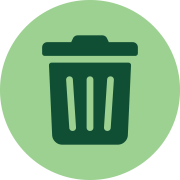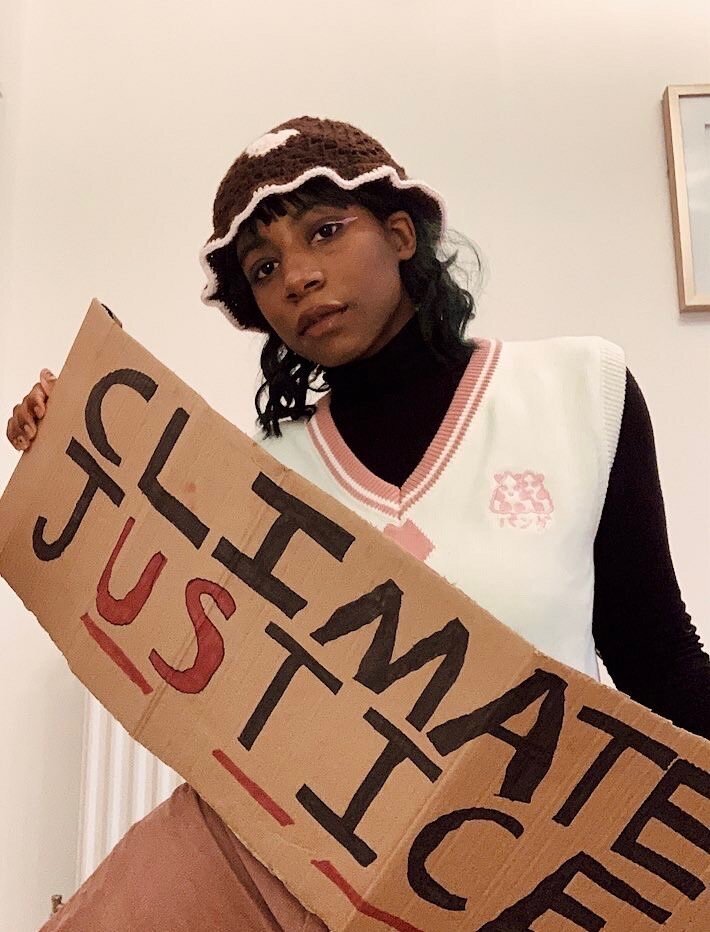4 BIPOC Eco-Warriors Taking Action on the Climate Crisis
My name is Britney Gabrielle Nurse and I am from a little twin-island in the Caribbean known as Trinidad and Tobago.
Fun Fact about me: Before pursuing a law degree, I applied to the New York Film Academy because my biggest dream was always to become an actress and I considered seizing any opportunity to get me to that goal! Sadly, I did not get accepted :( So... I was stuck with Law, lol
Currently, I am the Founder of an Environmental Awareness Organization called Renew TT. Our goal is to spread more awareness on eco-friendly and sustainable practices and encourage people on the island to become more eco-conscious as our country is mainly founded on oil and gas. I hope to garner more traction on the development and implementation of renewable energy in T&T and clean technology. We often take for granted our natural surroundings, particularly our marine environment which we depend on heavily for our livelihood, and so I hope that with the work of Renew TT in tandem with other movements there will be a shift towards a greener, sustainable future in Trinidad.
When asked about the future of climate activism I feel it looks very bright! I have seen an insurmountable increase in the number of environmental organizations and movements around the world within only a year and I believe that it can only grow stronger with increased awareness of relevant climate issues that impact us all as global citizens. Humans can do anything to make the world a better place and once we have the attention of the government and other powerful groups in society that are willing and motivated to promote sustainability and reduce global warming then that is the greatest gift to climate action!
On the topic of Climate justice intertwined with racial justice: The mainstream or rather traditional environmental movement has often sidelined justice demands from communities of colour, indigenous populations and generally low-income communities. However, there is a greater need for a human focus in climate activism and I firmly believe that these issues should not remain separate. Coming from a Caribbean island, I have seen my people become vulnerable to the perilous effects of a warming world especially as our society is grounded on a capitalist structure that thrives on fossil fuel dependency. We have burned the buried remains of plant and animal species that lived millions of years ago to change the landscape of the living. Fossil fuels embody the death that was essential to our life; they have already contributed to the reproduction of lifecycle processes. When humans use fossil fuels as the basis of social reproduction, they are choosing to live based on death instead of life. In these ways, we see that all oppression is unsustainable. Oppression produces contradictions that undermine the mechanisms of both social and ecological reproduction. The emerging renewable energy economy once again presents us with an opportunity to resist the tapestry of oppression. Such resistance requires that we craft new shuttles– by introducing policies that serve as a redress to past forms of expropriation– while simultaneously constructing a new loom– one energized not by the death embodied in the carbonaceous form of fossil fuels, but by the productive, immediate, and life-giving power of our Sun. Such dramatic changes require purposeful, community-based action!
One quote I will leave with you is this taken from Emiliano Zapata, a Mexican revolutionary during the Spanish Civil War: 'Es mejor morir de pie que vivir de rodillas' which means that it is better to die standing than to live on your knees. We all have causes that we believe are just and worth the sacrifice. This driving passion that we mirror in our own environmental movements is what will spark the change in an unjust, oppressive system.
My name is Veronica Mulenga, I’m a climate and environmental justice activist from Zambia and run a social media account called “Earth Warrior” where every week I address the climate crisis, environmental injustices, and how the Global South is disproportionately affected by these issues.
Fun fact about me: I love outer space, I probably would have been an astronaut if I wasn’t an activist. I love learning about the different planets, stars, and galaxies.
I believe that it is not sensible for anyone in the climate movement to stay silent on systematic racism.
So on the topic of climate justice in its relation to racial justice: climate justice is related to racial justice because the impacts of the climate crisis take a higher toll on marginalized communities, often composed of Black people and BIPOC communities than on wealthier communities whose lifestyles cause much more environmental damage; often consisting of white people. That is how they are connected.
Likewise, an issue I’m working to bring more awareness to is climate education. I wasn’t educated about the climate crisis until I finished high school, even though the impacts were already happening. The global education community has done little to advance wide-scale climate change education and that needs to change.
I hope that in the future of climate activism, society can come together to create a radical change that creates a better future. That the climate crisis is not only viewed as an environmental issue but as an issue of justice. That everyone can agree that the climate crisis is a global emergency and take action NOW!
Unless you are also solving the root of climate injustices, you are not solving anything at all. There is no climate action that is not also about racial justice.
Dominique Palmer(London, UK)
Climate Justice Activist and Organizer for Fridays for Future
My name is Dominique Palmer and I’m a student at the University of Birmingham, a climate justice activist, an organizer for the Fridays for Future movement, and the UK Launch and Press Coordinator for Climate Live.
I work on climate strikes, mobilization to unite for the climate, and various national and international campaigns that apply pressure for bold and systemic change. My activism is focused on environmental justice, a just and prosperous transition to a green and sustainable future, and applying pressure on world leaders to keep in line with 1.5 °C targets.
Fun fact I’m also a dancer and love musical theatre! I also love to explore the woods and roller skate :)
I believe climate justice is connected to racial justice because systemic oppression and injustices against marginalized communities are interconnected to the climate crisis. We can see that globally BIPOC are already being disproportionately impacted by the crisis and it threatens lives, water and sanitation, livelihoods, health, and the provision of clean air. The exploitative system that we have is unjust to people and the planet. Environmental justice requires that everyone deserves the right to a clean environment, and so we must have equity in our solutions. We cannot fight the climate crisis without fighting the intersectional issues. The fight for equity is universal, and without it we have no foundations to build on. Trying to fight the climate crisis without dealing with this is like trying to build a roof before building the house. You can’t see the full picture and it will collapse.
With action comes hope, and the hope comes from us...the people. The times I have felt the most hopeful for our future have been on the ground, surrounded by people fighting for the same cause!
My name is Sharona Shnayder, I’m a 20-year-old environmental activist, National Feild Advisor with Our Climate, Nonprofit Chairwoman for OSPDX, Co-founder of Tuesdays for Trash, and overall Earth steward. Though originally born and raised in Lagos, Nigeria, I’ve been living in Oregon for most of my life raising awareness and weaponizing my voice to encourage action on the climate crisis.
Fun fact about me: I’ll be moving to Israel in May of this year(2021) to intern for a B corporation turning household trash into a sustainable form of plastic material!
I wholeheartedly know that climate justice is directly related to racial justice because people of color are more likely to live in neighborhoods with highly polluted air due to redlining that disproportionately places toxic industries in their area. Due to this fact, people of color often have preexisting conditions—from hypertension to diabetes and asthma—that leave them at higher risk during health crises such as COVID-19 and the Climate Emergency. Countless studies have been conducted proving this reality, but what’s worse is knowing how long this fact has been apparent in our society and yet continues to go unresolved. POCs are in double jeopardy because of the malice directed towards them by urban development and consistent environmental hazards creeping into their living spaces. Not only are these individuals more vulnerable, they’re also less able to respond and cope with crises as many are often uninsured.
Furthermore, Black communities also tend to have more trash and litter in their areas. So an issue I’m working to bring more awareness to is the waste management aspect of the climate crisis—specifically in regards to the detrimental impact litter and plastic production is having on all facets of life on this planet. I hope that through activism in this climate movement we’re able to create a future where the environment no longer needs cleaning or protection. But rather can flourish and continue to sustain the beautiful landscapes, wildlife, and people it encompasses.
Lastly, to quote myself in summation of this topic: “Being proactive about climate change is our ONLY way of mitigating it. At this point we can’t stop the extreme weather already set in motion by decades of pollution, BUT we can keep it from getting worse.”




